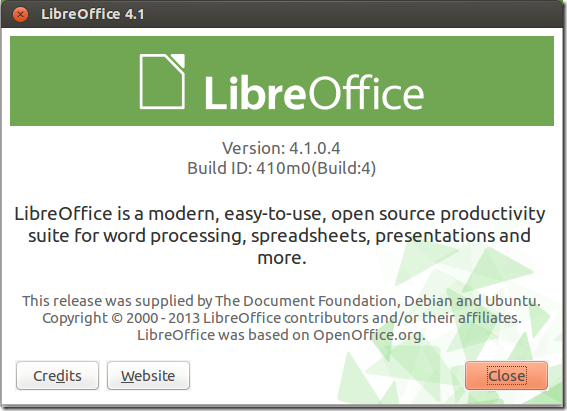The Document Foundation has just announced the released of LibreOffice 4.1.0 with exciting new features for early adopters and power users. For those who don’t like being the first to try new stuff, it’s recommended to continue using the 4.0.4 version. The 4.0.4 version is much stable and tested to work in many conditions.
For early adopters, the 4.1.0 version provides many new features, including Windows binaries that are digitally signed by The Document Foundation, the use of OpenJDK instead of GCJ Java variant which is known to have issues with LibreOffice and dropping support for legacy binary of StarOffice files.
This version also drops a long-deprecated feature that allows for exporting to legacy Word and Excel (version 6.0/95) and ODMA document management.
If you downloaded version 4.1.0 Release Candidate 4, then there’s no need to download or reinstall the final version because they are ‘bit-for-bit’ identical.
For more about this release, please check our this page.
Here are some of the changes that were added to this release
- New menu entries changed or added. You’ll have to readjust the menu if you customized it in previous version
- Windows binaries are digitally signed by The Document Foundation
- It is advised to switch to OpenJDK variant if you run GCJ Java variant in Linux systems
- Now you can choose the user interface language for Windows
To install LibreOffice in Windows and Mac OS X, use the download page here. It’s very easy installing LibreOffice on these systems. For Ubuntu machines, you can add the below PPA and update your system to get the latest version of LibreOffice
sudo add-apt-repository ppa:libreoffice/ppa
Next, run the commands below to update your system including LibreOffice
sudo apt-get update && sudo apt-get dist-upgrade
That’s it!
Enjoy! And keep coming back for more Linux, Windows and Ubuntu tutorials.

